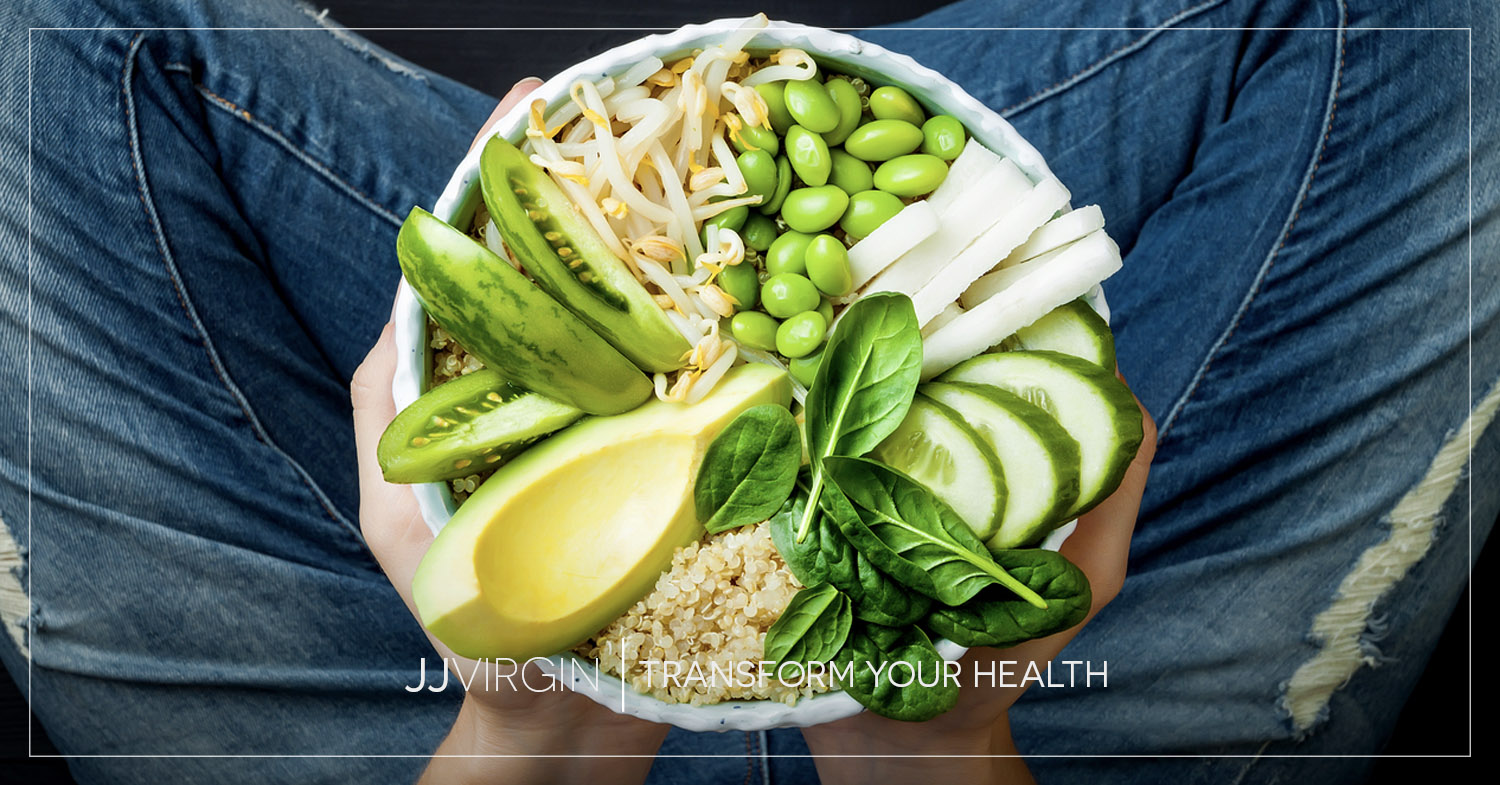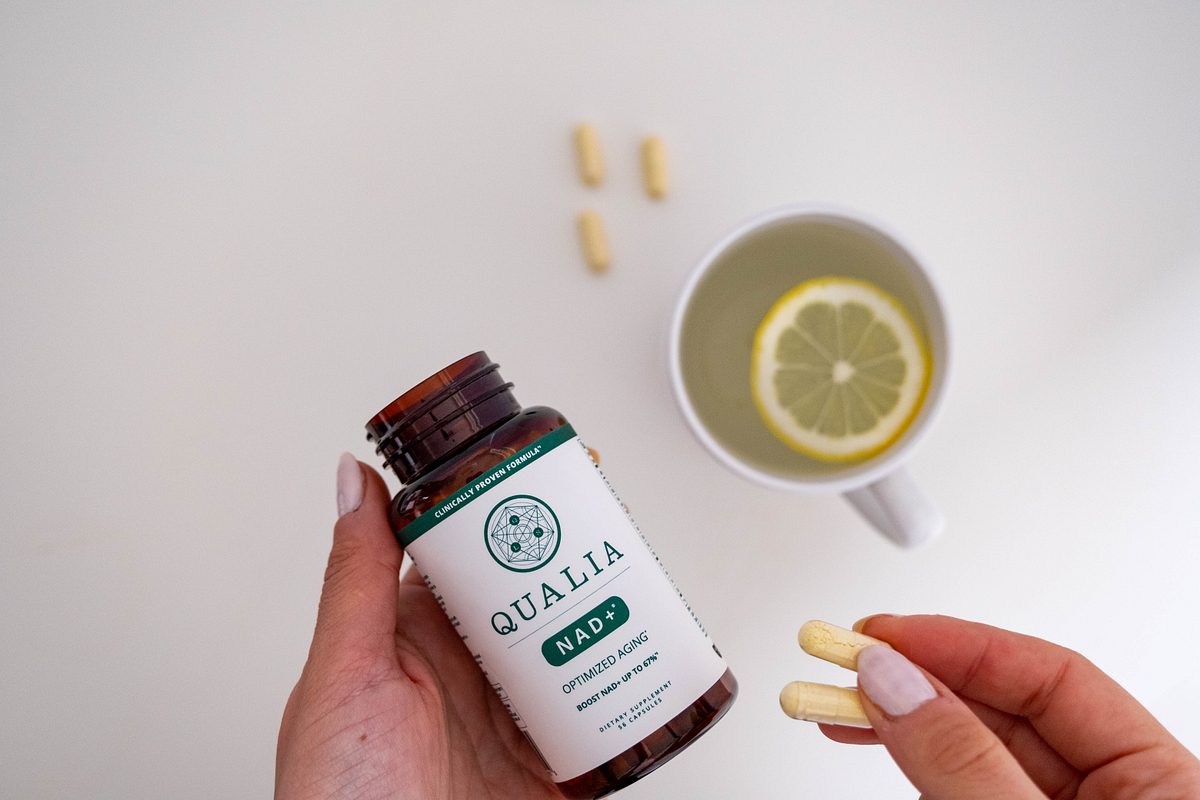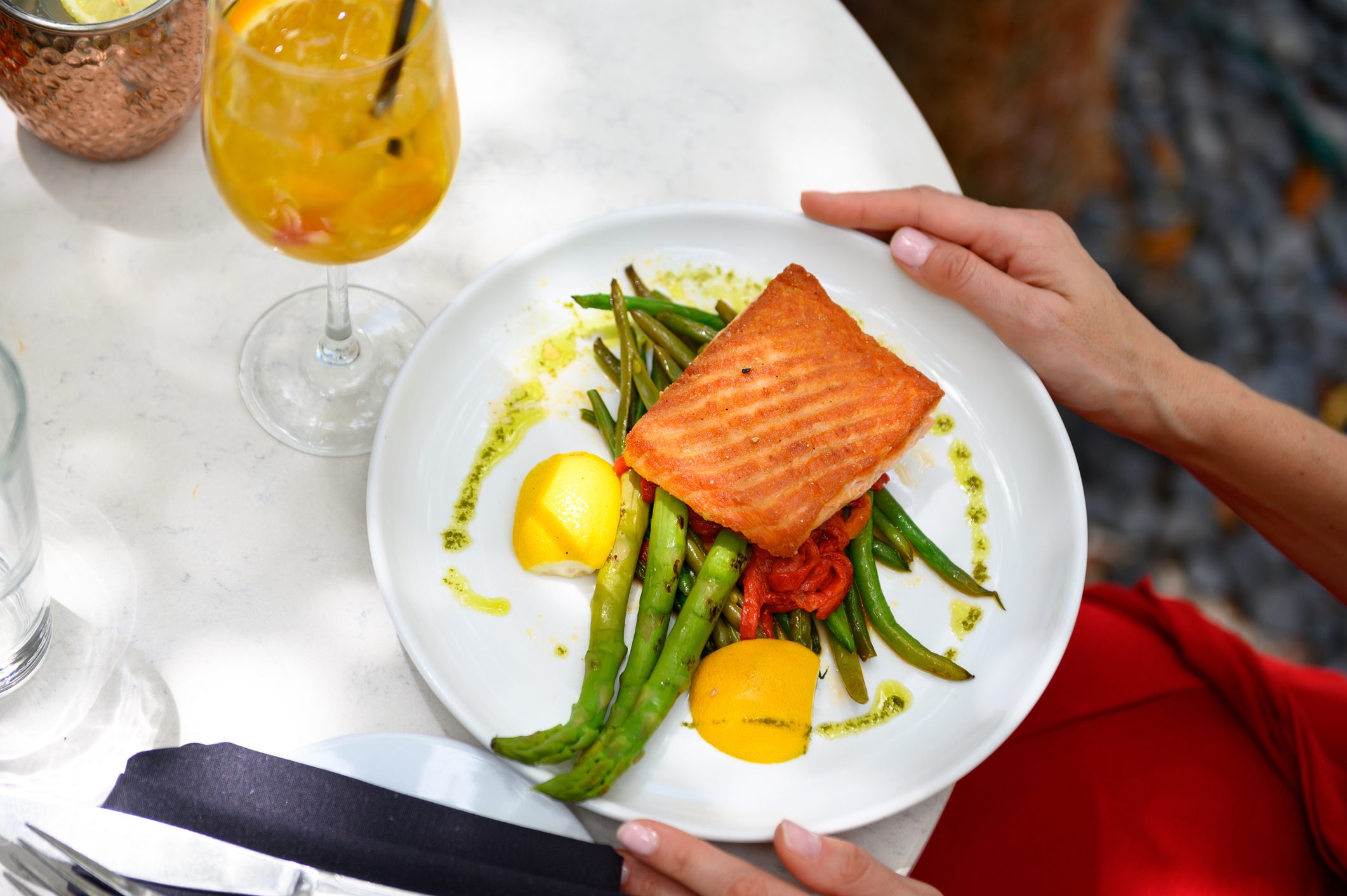Being a vegetarian or vegan definitely has its benefits, such as a lowered risk of heart disease, high blood pressure, and some cancers.
To be totally frank with you: staying healthy on a diet without clean animal protein requires special considerations. If you’re truly committed to eating a meat-free diet, I get it – and I’ve got you covered!
Read on for my best tips to getting super healthy as a vegan or vegetarian.
“Where do I start?” I get that question a lot. That’s why it’s so important to have a roadmap you can trust. A roadmap that breaks down your health journey into small, manageable steps. Download my Ultimate Health Roadmap and take control of your health… one step at a time. Get your FREE guide here.
1) Being Vegan or Vegetarian Doesn’t Equal Healthy or Thin
French fries are vegan. So are Oreos!
If a majority of your diet is processed food, faux meat and cheese products, and sugar, you aren’t going to be any healthier or thinner than you would be consuming animal products. Instead, aim to eat a plant-based diet that’s high in fiber, protein, and a variety of whole foods.
2) Drink, Drink, Drink
Because vegans and vegetarians consume more plant-based foods, they have a high fiber intake. It’s super-important that you drink enough water to help promote healthy digestion of that fiber.
Aim for 50 grams of fiber a day (start slowly and work your way up), and drink half your body weight in water ounces.
3) Taste the Rainbow
It’s important to make sure that you eat a wide variety of fruits and vegetables, since they all contain different nutrients.
A simple way to do this is to make sure that you’re eating fruits and veggies that are all different colors of the rainbow. Think red tomatoes, yellow squash, green kale, orange pumpkin, and purple eggplant.
4) You’re Sweet Enough!
Watch your sugar intake when following a vegan or vegetarian diet. If you want to satisfy your sweet tooth, grab a piece of low-sugar impact fruit (berries make a great choice) or replace refined sugar with monk fruit, birch tree-derived xylitol, or stevia. You can even use a dash of cinnamon or pure vanilla extract!
5) Mix It Up
Make sure you’re not eating the same foods over and over again, day after day. Doing this can cause you to develop food sensitivities.
Instead, keep lots of options on hand. Instead of always eating black beans, toss in chickpeas and lentils as well. If you usually choose spinach on your salad, try substituting arugula or mixed greens instead.
6) Get Fat
It’s important that you get healthy fat in your diet. Not only will it aid in weight loss, but it’s also required for things like maintaining a healthy hormonal balance.
If you can get these fats from whole or minimally processed food, even better! Try avocados, nuts, and oils from red palm fruit, olive, walnut, avocado, and coconut. (Here’s a blog with the Top 15 Foods for Omega-3s.)
7) Supplements Are Your Friend
Vegetarians and vegans ALWAYS need to supplement vitamin B12 because it’s exclusively found in animal products, and B12 deficiencies can be fatal.
If you’re not eating animal products, be sure to also take extra zinc, iron, vitamin D, and supplement with vegetarian omega-3s as well.
There you have it! Now, you can bypass many of the most common pitfalls of eating a meat-free diet, and achieve your goals for optimal health.
If you want even more tips and inspiration to create amazing vegetarian or vegan menus, I’ve got yummy, nutritious recipes in The Virgin Diet Cookbook and the Sugar Impact Diet Cookbook.
Plant-based protein? We’ve got you covered with our All-in-1 Shakes! Choose Chai Plant-Based, Chocolate Plant-Based, Vanilla Plant-Based. 3 fab flavors… all plant-based for vegans and vegetarians! *
The views in this blog by JJ Virgin should never be used as a substitute for professional medical advice. Please work with a healthcare practitioner concerning any medical problem or concern. The information here is not intended to diagnose, treat, or prevent any disease or condition. Statements contained here have not been evaluated by the Food and Drug Administration.
*These statements have not been evaluated by the Food and Drug Administration. This product is not intended to diagnose, treat, cure, or prevent any disease.






